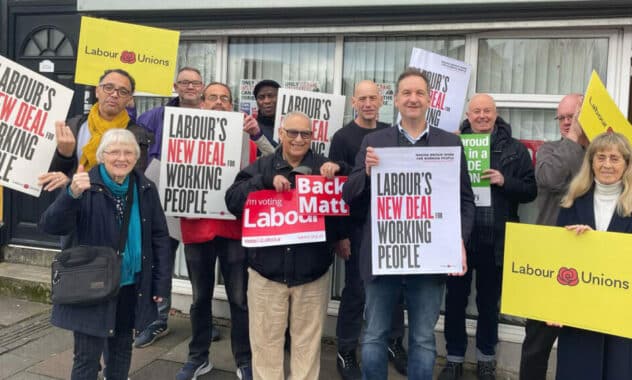Govt U-turns on workers’ rights review
Suspected attempts to weaken workers' rights originating in the EU have been scrapped after pressure from opposition parties and unions.

The government has u-turned on a review of workers’ rights associated with the EU-derived Working Time Regulations after it came under pressure from opposition parties and trade unions.
Earlier this month, sources told the Financial Times that the Department for Business, Energy and Industrial Strategy (BEIS) was consulting with a selected group of business leaders on potential changes to working hours.
Under the Working Time Regulations, employers must not force workers to take on more than 48 hours per week, offer them adequate rest breaks, and allow them to accrue holiday pay on hours worked overtime. In the UK, however, these laws have been diluted in such a way that workers can opt-out of them – a common occurrence in jobs associated with long shifts, such as in the hospitality industry.
Business Secretary, Kwasi Kwarteng, has publicly aired his distaste for any form of limit on the amount of time workers spend on their jobs – even if workers can opt out at any time. In the 2012 book Britannia Unchained, he and his coauthors Priti Patel (now home Secretary), Dominic Raab (now Foreign Secretary) and Liz Truss (now Trade Secretary) described British workers as “among the worst idlers in the world”.
After initially denying rumours of a review, Kwarteng last week came clean about the consultation he was holding, admitting to the Business, Energy and Industrial Strategy Select Committee that he was considering which EU workers’ rights he wanted to “keep”.
But after the Labour Party forced a House of Commons vote on the matter on Monday evening, and probing questions were asked in the House of Lords, the government has backtracked.
“So, the review is no longer happening with BEIS,” Kwarteng told Robert Peston on his ITV show last night. “I’ve made it very, very clear to officials in the department that we’re not interested in watering down workers’ rights.”
Kwarteng went on to insist that he could not have been “more clear” that he wants to take Brexit as an opportunity to improve rather than destroy workers’ rights, but in the Commons debate on Monday he faced skepticism over such promises.
“The truth is … that they have been forced to climb down today because of the outcry, but that does not merit a pat on the back,” Ed Miliband, Shadow Secretary of State for Business, Energy and Industrial Strategy, told the Commons.
“The very fact that they were considering taking away vital rights, including the 48-hour limit on the working week, from nurses, ambulance drivers, lorry drivers and supermarket delivery drivers speaks volumes … this was not some Whitehall accident; this is what they believe.”
Fire and re-rehire
Indeed, Shadow Secretary for Employment Rights and Protections, Andy McDonald, opened the debate by asking the Business Secretary why the government has still not done anything to help the thousands of British workers who are being fired by major employers and rehired on inferior contracts.
“Fire and rehire is a dreadful abuse and allows bad employers to exploit their power and undercut good employers by depressing wages and taking demand out of the economy. It is all the more galling when those very companies have had public funds to help them get through the pandemic” he said.
Reminding Parliament that Labour had sounded the alarm on an increase in fire and rehire tactics over six months ago, he said: “If the government had listened to the Leader of the Opposition back in September, countless workers could have been spared painful cuts to their terms and conditions, but it is not too late for the Government to act. They can act now to introduce legislation to end fire and rehire and give working people the security they need. If they do that, they will have our full support.”
Kwarteng responded by saying the government is still gathering evidence on the phenomena and would then consider if it should be outlawed.
Are UK workers’ rights stronger or weaker than in the EU?
Throughout Monday’s debate and government statements in recent weeks, various Conservative leaders have claimed that the UK has stronger workers’ rights than the EU. IER Chair, Lord John Hendy WC, described their assertions as “misleading”.
“In the UK we have a national minimum wage. The EU are seeking to make one mandatory across the EU. It will apply to all workers. In the UK over 2 million workers who are entitled to it are paid less than the national minimum wage. This is five times the level of evasion in 2019.
“British full-time workers work amongst the longest working hours in Europe and have amongst the least number of days of paid holidays. They work more years to retirement than most Europeans and mandatory maternity pay and parental leave are amongst the lowest in western Europe.
“The UK has the lowest rates both of mandatory sick pay and of unemployment benefit in the entire OECD. As for trade union rights, the UK has ‘the most restrictive laws on trade unions in the Western World’ as Tony Blair reported in 1997 – and those laws have become more restrictive, in particular by the Trade Union Act 2016. Now, in the midst of the worst pandemic for a century and the worst recession for three centuries, is not the time to attack workers rights.”







